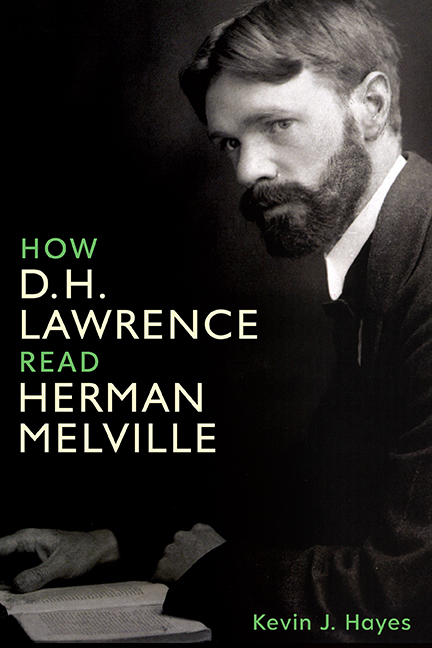Book contents
- Frontmatter
- Dedication
- Contents
- Acknowledgments
- Preface
- List of Abbreviations
- Introduction
- 1 An English Midlands Bookshelf
- 2 An Archway into the Future
- 3 Everyman and the Dead Narrator
- 4 How Moby-Dick Shaped Women in Love
- 5 A Little Hesperides of the Soul and Body
- 6 The Symbolistic All-Knowledge
- 7 The Melville Centenary
- 8 Typee under Etna
- 9 Two Days in Tahiti
- 10 The Voyage Home
- Index
3 - Everyman and the Dead Narrator
Published online by Cambridge University Press: 26 May 2022
- Frontmatter
- Dedication
- Contents
- Acknowledgments
- Preface
- List of Abbreviations
- Introduction
- 1 An English Midlands Bookshelf
- 2 An Archway into the Future
- 3 Everyman and the Dead Narrator
- 4 How Moby-Dick Shaped Women in Love
- 5 A Little Hesperides of the Soul and Body
- 6 The Symbolistic All-Knowledge
- 7 The Melville Centenary
- 8 Typee under Etna
- 9 Two Days in Tahiti
- 10 The Voyage Home
- Index
Summary
Writing to Lady Ottoline Morrell a few weeks after he and Frieda had settled into J. D. Beresford's vacation home in Portcothan, Lawrence informed her about his latest literary obsession: “I am reading Moby Dick. It is [a] very odd, interesting book: to me interesting, the others can't bear it.” As his words suggest, Lawrence reacted to the book in much the same way as other readers who had discovered Melville for themselves. Samuel Arthur Jones may have put it best when he described how he felt on reading Moby-Dick: “I too felt as if a new planet had swam into my ken.” H. M. Tomlinson had a friend who fell in love with the book but hesitated to share it. He would recommend Moby-Dick only to those whom he considered worthy.
Lawrence was less discriminating. After reading Moby-Dick, he introduced many friends to the book. The “others” he mentions in the letter to Lady Ottoline were the people staying with him and Frieda in North Cornwall in early 1916. The second week of January both Philip Heseltine and Dikran Kouyoumdjian (who would write bestselling novels under the penname “Michael Arlen”) joined them for an extended visit. Heseltine's correspondence from Portcothan confirms Lawrence's unsuccessful efforts to impose his literary tastes on his guests. In a letter to Delius, Heseltine calls Lawrence's artistic canons “utterly and entirely unsympathetic to my nature.”
Heseltine ultimately gained respect for at least one author in Lawrence's artistic canon. He would return to Melville after Lawrence introduced him to Moby-Dick. And once a new edition of Pierre appeared in the early twenties, Heseltine read it and began quoting from it. He used a passage from Pierre to characterize Delius, who
ordered his life according to the admirable maxim of Herman Melville: “Feed all things with food convenient for them—that is, if the food be procurable. The food of thy soul is light and space; feed it then on light and space. But the food of thy body is champagne and oysters; feed it then on champagne and oysters; and so shall it merit a joyful resurrection, if there is any to be.”
The letter to Lady Ottoline does not identify which edition of Moby-Dick Lawrence read, but references in his writings provide clarification.
- Type
- Chapter
- Information
- How D. H. Lawrence Read Herman Melville , pp. 45 - 62Publisher: Boydell & BrewerPrint publication year: 2021



